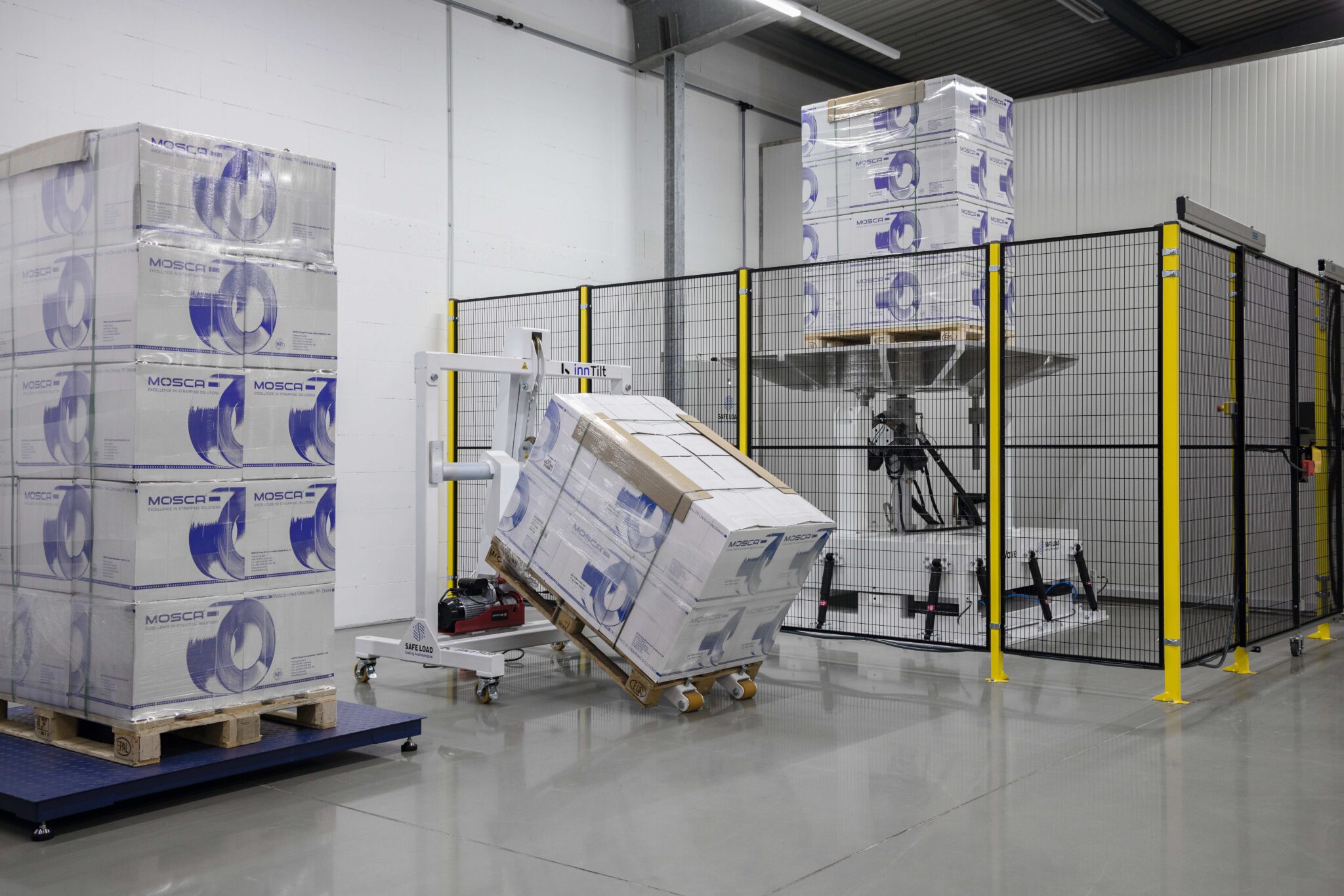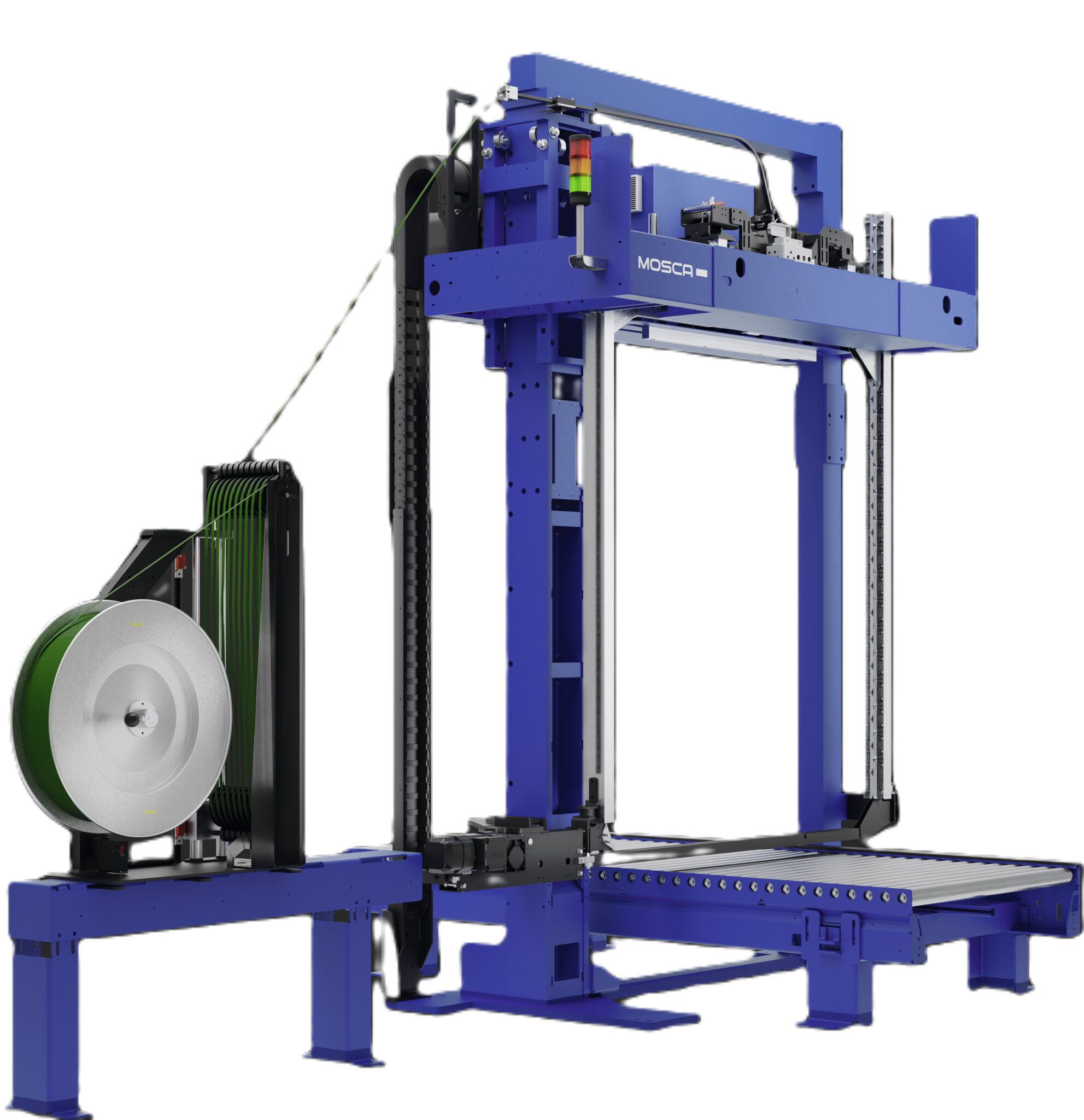An exemption based on facts: Mosca GmbH, together with twelve other companies from the European strap industry, has founded the ‘project alliance straps’ (PAU) association. The aim of the alliance is to convince political decision-makers in Brussels of the need for an exemption, a so-called delegated act, within the framework of the new EU packaging regulation and to exempt strapping material from the reusable quota provided for therein.
The Packaging and Packaging Waste Regulation (PPWR) governs the management of packaging within the European Union and requires EU member states to reduce their packaging-based carbon emissions. The overall goal is to minimize the use of plastics in packaging and to move from a linear petroleum-based approach – such as incineration of plastic waste – to circular recycling. This includes Article 29, which sets strict requirements and quotas for the reuse of transport protection materials such as stretch films, pallet covers, and straps. Consequently, these regulations place the article at the center of the alliance’s efforts.
“We fundamentally support and welcome the PPWR, as it is in line with our philosophy and goals for a more sustainable future, advocating the development of a circular economy for strapping materials,” says Dr. Martin Bussmann, vice chairman of the board of project alliance straps and head of material innovation at Mosca. “However, we see an urgent need for action regarding Article 29 to ensure the safety of product transport and the stability of supply chains.”
If the article remains unchanged, this could have a significant impact on established and secure logistics solutions from August 2026 – with serious consequences for security and global supply chains, as Bussmann emphasises: “This is a very serious matter: The reuse of straps poses significant safety risks, as material fatigue weakens the stability of transport packaging, potentially causing pallets or packages to shift or become damaged. This is particularly dangerous in dynamic situations, such as emergency braking, where both goods and people could be at risk.” To prevent this, Mosca has teamed up with companies such as Teufelberger, Fromm Plastics, Messersi, Sekisui Jushi, Embalcer, cpdesign, and Green Tech to form the project alliance straps.
Fact-based testing as the key to exemption approval
With a comprehensive position paper based on science, the Alliance aims to demonstrate that straps pose a significant safety risk when used repeatedly yet are more sustainable than alternative packaging solutions such as metal crates – making an exemption for this type of transport securing essential. “Only with independent research and pooled expertise can we create an evidence-based foundation to support the political decision-making process in Brussels,” says Dr. Bussmann.
The position paper is based on comprehensive, independent tests carried out by the Fraunhofer Institute for Microstructure of Materials and Systems (IMWS), among others. The research team examines various materials at the molecular level and analyzes how the material properties of the straps change with the stress of use and reuse. “The initial results confirm our theory that reuse leads to weaknesses in the material, which no longer guarantees the safety of the transport packaging. This is a key aspect in favour of the exemption to ensure safety at the end of a supply chain world-wide,” Bussmann explains.
A comparison of the sustainability of strapping
The position paper also focuses on the sustainability balance of straps. In a comprehensive life cycle analysis, strapping material is compared with alternatives such as metal boxes or collapsible transport crates. “The results so far show that straps have a better carbon footprint than heavier, reusable packaging solutions, even though they are used only once,” says Bussmann. “It is important for us to show in a measurable and scientifically based way that our strap is not only safe, but also a minimum packaging that is sustainable, even when compared to alternative solutions.”
Once the tests and analyses are completed in early 2025, the results will be reviewed by a European university to ensure their scientific validity. “The additional external review strengthens the credibility of our results and ensures transparency in our approach,” says Bussmann. The alliance plans to present the position paper to political representatives in Brussels in mid-2025. “We hope to convince decision-makers of the need for a delegated act that recognizes strapping and packaging materials as a safe and sustainable packaging solution, thus ensuring the long-term use of straps in transport packaging,” he concludes.
similar news



